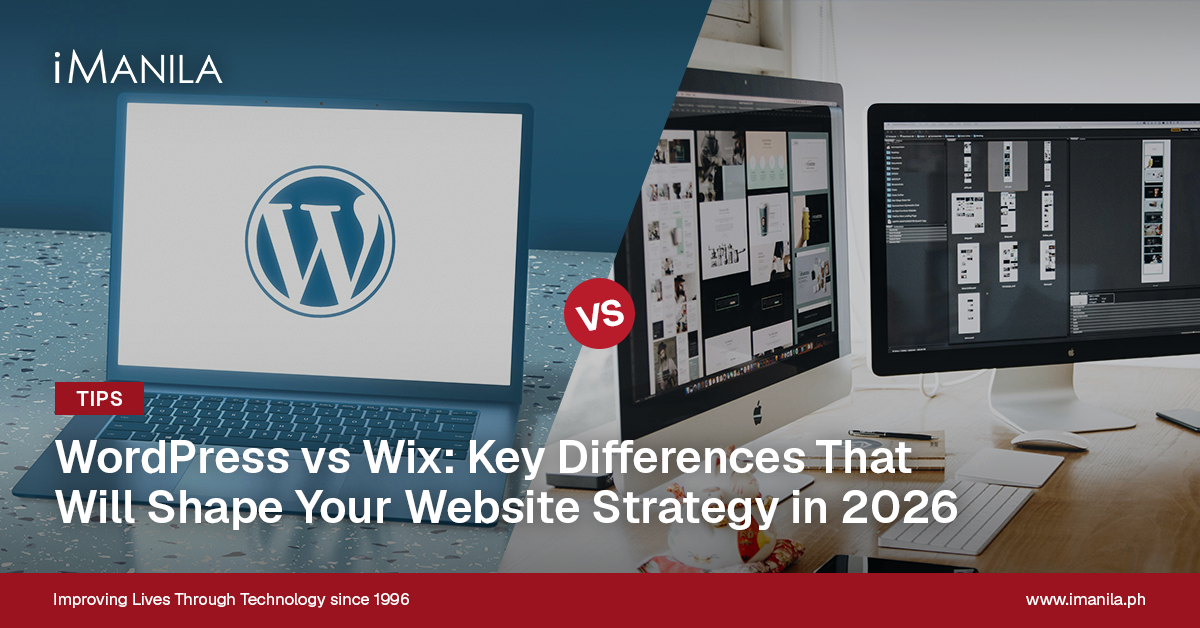Love at First Click: Choose the Right Website Builder
A business website is often the first point of contact between brands and customers. Whether you’re a startup, a small or medium-sized enterprise (SME), or a growing company, your website needs to load fast, look professional, and work seamlessly on mobile devices. This is why many businesses turn to a website builder, but questions often come before commitment.
If you’re considering using one, here are the most frequently asked questions about website builders, answered clearly to help you make the right choice.
What Is a Website Builder?
A website builder is a platform that allows you to create a website using pre-designed templates and easy-to-use tools, often without coding knowledge. It simplifies the process of building, managing, and updating a website.
In the Philippine market, website builders are popular among small businesses, online sellers, professionals, and companies that want to go online quickly without the high cost of custom development.
Why Do Businesses Use Website Builders?
Website builders are ideal for businesses that want:
- Faster website launch
- Lower upfront costs
- Easy content updates
- Minimal technical maintenance
- Mobile-friendly design out of the box
Since many users browse primarily on mobile devices, website builders help ensure a smooth experience across screens.
Why Is WordPress a Popular Website-Building Option?
WordPress is one of the most widely used platforms locally and globally. It is a flexible content management system (CMS) that allows businesses to build professional websites while offering full control over design, functionality, and growth.
With WordPress, you can:
- Customize your website using thousands of themes and plugins
- Optimize for SEO with built-in tools and plugins to improve search rankings
- Integrate marketing tools like email forms, social media feeds, and analytics
- Manage content efficiently, including blogs, portfolios, and product pages
While WordPress offers flexibility and scalability, it requires proper setup, security management, and regular updates. Many businesses work with a professional agency to ensure their WordPress site is secure, optimized, and designed to convert visitors into leads.
Website Builder Alternatives to WordPress
If WordPress isn’t the right fit, here are other popular website-building options you can consider:
Wix
A beginner-friendly, drag-and-drop website builder ideal for small businesses and personal websites. Wix requires minimal technical skills and includes built-in hosting, templates, and maintenance.
Squarespace
Known for its clean, modern designs, Squarespace is best for creatives, portfolios, and small brands that prioritize visual appeal with minimal customization needs.
Shopify
A dedicated eCommerce platform designed for online stores. Shopify handles hosting, security, and payments, making it ideal for businesses focused on selling products online.
Webflow
A design-focused platform offering more control than typical website builders. Webflow suits designers and businesses that want custom layouts without managing plugins or server-side maintenance.
Custom-Built Websites
For businesses with unique requirements, a fully custom-built website provides maximum flexibility, performance, and scalability but it requires a higher investment and ongoing development support.
Why Partnering With a Web Design or Digital Agency Matters
While website builders are user-friendly, strategy, structure, and optimization still require expertise. Working with an agency like iManila ensures your website:
- Is built on the right platform for your business goals
- Delivers a professional, user-friendly design that converts visitors
- Performs well in search engines and on mobile devices
- Integrates marketing tools to support your growth strategy
- Avoids technical issues, security risks, or costly mistakes
An agency doesn’t just build a website, it creates a digital asset that grows with your business, helping you attract and retain customers from the very first click.
Final Thoughts
Your website is more than just a digital brochure, it’s a key part of your business strategy. Choosing the right website builder ensures your site is fast, professional, and designed to convert.
With the guidance of a professional web design or digital marketing agency, businesses can achieve “love at first click,” turning visitors into loyal customers and creating lasting online growth.
Partner with iManila
With 30 years of experience in the industry and an IT company at its core, iManila, having been one of the first Internet Service Providers in the Philippines, is committed to providing our clients with innovative information technology, web, and digital solutions.
iManila is a full-service business web development company in the Philippines ready to help you with WordPress website creation or building an ecommerce website for your business. From web design and development and website update and maintenance, to web hosting, email hosting, and technical, desktop and remote support, we are your team. Aside from this, we are also a website and mobile applications development company specializing in customized web systems for businesses in different industries and a top digital marketing agency that provides a wide range of digital marketing services. Talk to us!









